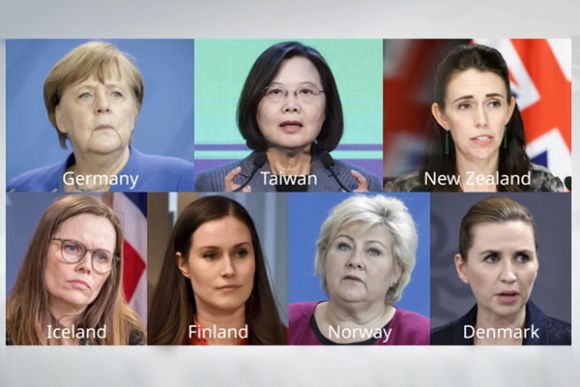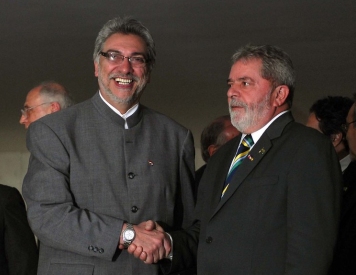As Lula re-emerges in Brazil's national affairs, Jair Bolsonaro's position is increasingly under threat, writes Yanis Iqbal.
ON 24 JANUARY 2018, Luiz Inácio Lula da Silva, usually known as "Lula", was tried at the Federal Court of Appeals. The Court confirmed the previous decision of Judge Sergio Moro and sentenced him to 12 years in prison.
The term of the Clean Record Act meant he was ineligible to run for the 2018 elections. The weaknesses of the case against Lula were widely denounced: there was a lack of evidence, lack of a right of defence, illegal confinement of witnesses, abuse of process and bias against the defendant.
There were popular demonstrations in Lula’s support and disapproval of the decision. Unfazed, Lula gave an electrifying speech on 7 April 2018, calling on his allies and admirers to turn into millions of Lulas:
“All of you, from now on, will turn into Lula and will walk around this country doing what you have to do. They have to know that the death of a combatant will not stop the revolution.”
On the same day, Lula turned himself in at the Federal Police headquarters in Curitiba. On 17 August 2018, the United Nations Human Rights Committee requested that Brazil’s Government not prevent Lula:
“... from standing for election in 2018 presidential elections, until his appeals before the courts have been completed in fair judicial proceedings.”
None of this had an impact on the Brazilian ruling elite which was hell-bent on putting Lula in jail.
A grassroots leader
Now, Lula walks as a free man after the Supreme Federal Tribunal, Brazil’s highest court, struck out all the criminal convictions against him.
Opinion polls suggest that Lula is the best-placed politician to challenge the ultra-right President Jair Bolsonaro in the 2022 elections. At the same time, Bolsonaro is fast losing his appeal among the electorate: his disapproval rating hit a new high at 54%.
What explains the enduring popularity of Lula?
Unlike any other politician coming from a rich background, Lula was born into a family of illiterate farmers as their seventh son. They all lived in a house with only two rooms, an earthen floor and no running war. They were less than poor, condemned to live a life of pure precarity.
Lula began to work at the age of seven in August 1953. After working informally as a street vendor, shoeshine boy, office boy and as an auxiliary of a laundry assistant, he got his first registered job at Columbia General Warehouses.
In 1966, he got a job at Industrias Villares, in Sao Bernardo do Campo where he joined the Metalworkers Union. Lula emerged on the national scene from the late 1970s as a confrontational union leader, heading a revival of labour struggles. The Workers Party (PT) was founded in February 1980 as part of this organised labour movement.
After three failed attempts, Lula won the Presidency in October 2002. Lula was Brazil’s first working-class President; the first President without a university degree; the first enrolled in a left party; the only President to democratically complete two terms in office; and the only elected President followed by a successor who was also elected by direct popular vote.
Under Lula, a concerted campaign was initiated to provide basic amenities to the people. While not radical, it allowed the impoverished masses to live a dignified life.
In Lula’s words:
I have made upward social mobility possible for the most underprivileged people in Brazil. I helped lift 36 million people out of extreme poverty, I have settled farmer families on 47 million hectares, I helped another 40 million Brazilians escape poverty and join a new lower middle class, I have brought electricity access to more than 15 million people.
He also started the Fome Zero program for combating hunger in 2001. The program became part of the country's public policy in 2003. Lula similarly moved a considerable amount of public finances towards education. The University for Everyone Program (PROUNI) was created during Lula’s first term in 2005. The Student Financing Fund for Higher Education (FIES) was reformulated and expanded in 2010, during Lula’s second term in office.
Social minorities gained from his policies. Hunger, a grave problem in Brazil, vanished and new federal universities, accessible to the working class, opened.
The left’s resurgence?
A survey released on 16 December 2010 showed Lula’s approval rating at 87%, an unprecedented level. A Sensus Institute survey showed the same, qualifying Lula as the president with the highest ratings on the planet. By comparison, Nelson Mandela left the South African Government in 1999 with an approval rate of 82%.
It is evident that Lula is deeply etched in the political consciousness of the Brazilian citizenry. With the dropping of all charges against him, it is possible that the Brazilian left will see a resurgence in its national strength.
Yanis Iqbal is an independent researcher and freelance writer based in Aligarh, India.
Related Articles
 This work is licensed under a Creative Commons Attribution-NonCommercial-NoDerivs 3.0 Australia License
This work is licensed under a Creative Commons Attribution-NonCommercial-NoDerivs 3.0 Australia License
Support independent journalism Subscribe to IA.














